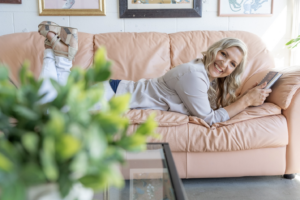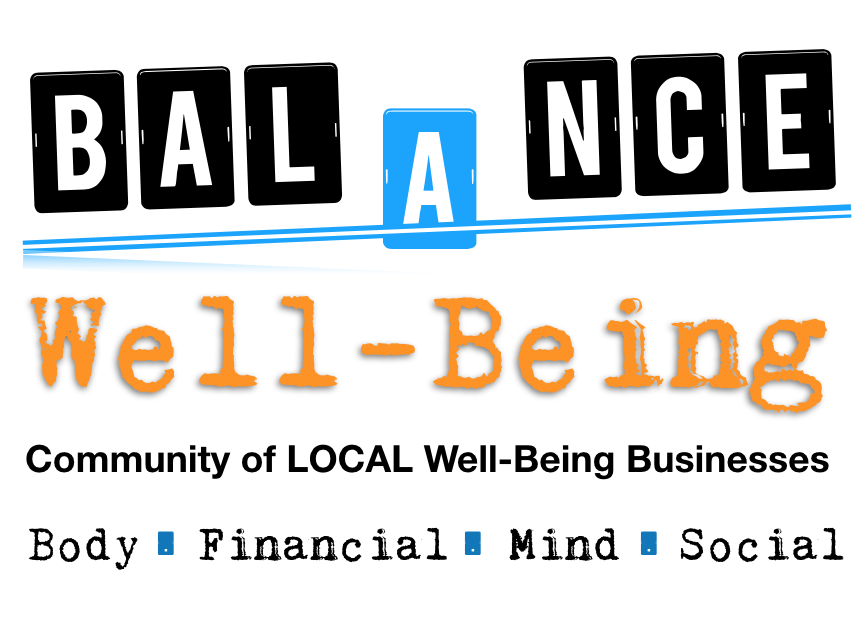 How much can you know about yourself if you have never played in the dirt? For Crystal Jensen, this is more than a rhetorical question, it is a personal call to action. Crystal, an early childhood educator and the founder of Mindful Expressions, wants children to feel free to discover themselves and create possibilities through play and exploration in nature.
How much can you know about yourself if you have never played in the dirt? For Crystal Jensen, this is more than a rhetorical question, it is a personal call to action. Crystal, an early childhood educator and the founder of Mindful Expressions, wants children to feel free to discover themselves and create possibilities through play and exploration in nature.
Having spent many moments of her own childhood playing outside and finding her truth, Crystal understands the freedom in knowing who you are and having the independence and confidence to share it with the world. She also understands the crucial importance of guiding children through their early years in a way the builds their sense of self, healthy boundaries, and a voice within a group.
Crystal and her team have a variety of programs for preschool children (ages 30 months to 5 years) designed to spark curiosity, reduce anxiety, and cultivate connection, communication, and collaboration. They help kids find mindful expression and tools for self-awareness, learning, and problem-solving that can last them a lifetime.
We were eager to learn more about Crystal and the wonderful work she and her team do at their Early Learning Centre.
At our last Storytelling event you spoke engagingly about your early challenges regarding self-expression and the need for children to feel free to find themselves. Tell us a bit about your own childhood experience and how the insights you learned inspire you today and inform your work.
My childhood was filled with lots of outdoor activities — fishing, camping, playing outside until it got dark. We believed in playing in the earth and I have many memories of being rinsed off with the hose before coming inside. Being out in nature is so important. Kids need to unplug from electronics, from life, and get back outside to reconnect with Mother Nature and rebalance their thoughts and feelings.
Oftentimes when children are showing emotions, parents are unable to handle their own feelings and triggers; therefore, children are told to go to their room and cry. By helping parents recognize this pattern, we can help them guide their children’s behaviours and emotions toward a more positive foundation for mindful expression.
Children, like adults, vary in their inclinations, aversions, and interests. We all need to find a balance between individuality and cooperating with others. How do you address this challenge through your emergent play programs and your intake process?
Children are our biggest teachers. We need to stop and listen with our minds. We need to listen to their non-verbal cues in order for us to fully understand what is happening — the symptoms and the struggles. We have to shift our mindset and realize these behaviours are a gift. We need to take a moment and pause, to observe and ask questions that encourage our kids to fully express themselves. The behaviours can be resolved by just giving kids a safe space to express themselves and to respond. We parents and adults can be quick to react without recognizing that our reactions come from a place of our personal beliefs or upbringing.
Our intake process at the centre ensures that parents recognize we have a coparent/teacher relationship. The behaviours they see at home, we also see in the centre. This in turn creates a relationship with the family so we can share the experiences, the learnings, and lead by example. Parents observe how we model appropriate behaviour through the ways we handle the situations in the centre, so that they can learn and develop their parenting skills. Sometimes we need to remove our expectations and observe, to better serve the needs of the child.
And when we observe the children playing and discovering together, we can see how their needs are being met individually and as a group.
I would imagine that the storytelling is a key way to find this balance! You offer a wonderful array of activities, and the storytelling really caught my attention. This is such an important part of being human and finding one’s voice while connecting to one another. What does this look like at your centre?
Absolutely! We love storytelling, and children are the best storytellers. Storytelling gives kids the opportunity to express themselves through play. The struggles and challenges they are feeling can be expressed and processed through stories.
I like to take the children through guided-imagery stories. We go into the calm room and lay out on the mats. I will use a balancing stone on their tummies to help them explore stillness. They close their eyes and the kids contribute to the stories by telling me what they want to see, hear, taste, and feel. Someone may say a purple butterfly, that it smells like cotton candy. Then, with their suggestions, we create a story. Imagination is SO important. By the age five, most kids’ imaginations have been shut down. We need to find ways to encourage imagination. Exploring through storytelling helps with this as they grow and develop.
We also use puppets to teach basic mindful practices, breathing techniques, self-regulation, and “I am” statements. The puppets engage the children through songs, music, and movements. They also help to bring out dramatic play. The children really connect with them.
What is wonderful about the centre is that we have attracted a lot of like-minded families whose children come forward and share their stories. For example, we have a child who is building an off-grid cabin with his mom. It is inspiring to hear him talk about how he is building a wall or laying the floor. It is very inspiring to hear the many stories through children’s eyes and experiences.
I often ask our members to tell me what “balance” and “well-being” mean to them. How would you define these terms with respect to children, whose growth and development require the ongoing guidance of adults?
Balance and well-being are the core of everything. For children, having a balance of sleep, food, play, learning, and love encompasses well-being. And incorporating these practices into our daily lives supports the development of the children and adults — the whole family. In a perfect world it would be amazing if all families were balanced and had well-being. It is my belief and our centre’s philosophy that by incorporating mindful practices into early education, nature, and play-based learning, we can help create balance and well-being, and provide a healthy foundation for growth on an ongoing basis.
How are you dealing with the challenges of the pandemic in terms of group play?
We are very blessed to have an incredible outdoor space; it’s a very unique play space. We spend the majority of our time outside, running around freely, exploring nature, and playing. Our centre has eleven families and we operate as a cohort. As a group we do believe in a lot of outside time. However, we know that not all spaces can operate this way, so we are very happy and grateful for our set-up.
Tell us about the Mindful Play Summit you recently hosted. And will there will be another?
The MPS was an eleven-day event, from September 21 to October 1, and it featured over twenty speakers discussing how to nurture your child’s developing mind, turn the crazy into calm, and embrace curious play. It was a hug success! We had over 2,000 people attend worldwide. I am happy to say that this will be an annual event. To learn more and keep up-to-date with future events, please visit www.mindfulexpressions.co.
Share an insight or something about yourself many might not know.
Learning to love myself has been a lifelong process. The moment that I started to teach children to connect with themselves and deeply inspire them to love themselves was the moment I found a part of myself I had forgotten for many years. And it gave me an opportunity to connect more deeply with myself. Every day we talk about positive self-image we talk about loving ourselves and finding connection. It is a daily reminder and such a beautiful process to move through healing and continue learning about my own development while supporting and developing young minds.
https://www.facebook.com/mindfuleducators/
IG: @crystal_cremers @mindfulexpressions
E – [email protected]
Tom Kernaghan, owner of Oak Writer
I write stories about people, businesses, and communities so that people will remember what makes them uniquely powerful.
Tell me your story!
(250) 863-6297
oakwriter.com

